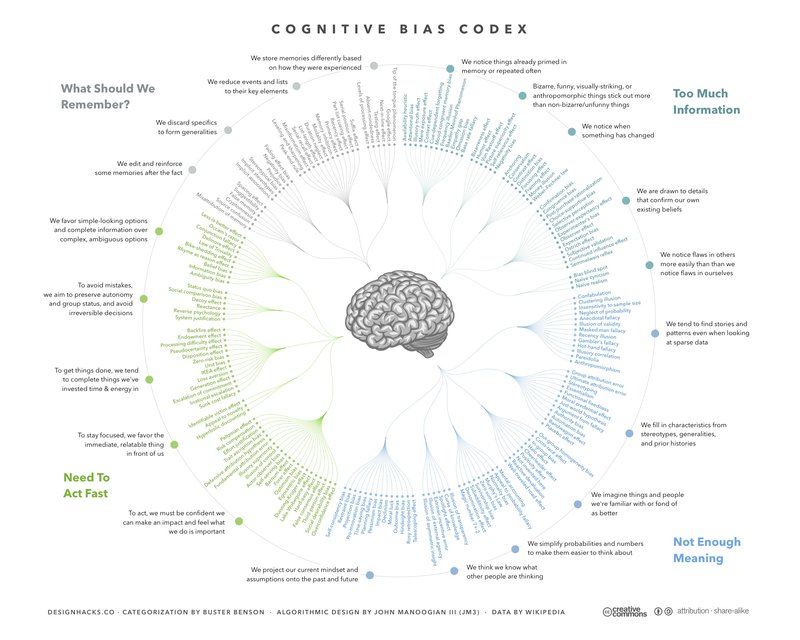Cognitive Bias: Unraveling the Mysteries of Decision-Making

Introduction
Cognitive bias, a fascinating and intricate aspect of human psychology, plays a significant role in shaping our thoughts, judgments, and decisions. These biases, which are mental shortcuts, can both help and hinder us in various situations. In this article, we will delve into the world of cognitive bias, exploring its definition, various types, and their profound impact on our lives.
Understanding Cognitive Bias
Cognitive bias refers to systematic patterns of deviation from norm or rationality in judgment, often in reference to particular cognitive tasks. These biases result from the brain's attempt to simplify information processing. They are essentially mental shortcuts that help us make decisions quickly, but they can lead to errors in judgment.
Types of Cognitive Bias
1. **Confirmation Bias**: This is the tendency to search for, interpret, and remember information in a way that confirms one's preconceptions. People often seek out information that aligns with their existing beliefs.
2. **Anchoring Bias**: When making decisions, individuals rely too heavily on the first piece of information encountered (the "anchor"). Subsequent judgments are then adjusted based on this initial reference point.
3. **Availability Heuristic**: This bias occurs when people overestimate the importance of information that is readily available to them. Recent or vivid events often have a greater impact on decision-making.
4. **Hindsight Bias**: Sometimes referred to as the "I-knew-it-all-along" effect, this bias leads people to see past events as having been predictable after they've already occurred.
5. **Loss Aversion**: People tend to prefer avoiding losses over acquiring equivalent gains. In other words, the pain of losing is psychologically more intense than the pleasure of gaining.
6. **Dunning-Kruger Effect**: This bias refers to individuals with low ability at a task overestimating their ability, while those with high ability underestimate their relative competence.
7. **Overconfidence Bias**: People often overestimate their own abilities, knowledge, or the accuracy of their beliefs and forecasts.
8. **The Halo Effect**: This occurs when people allow their overall impression of a person, company, or brand to influence their judgments about specific qualities or characteristics of that entity.
Impact on Decision-Making
Cognitive biases can significantly affect decision-making in various areas of life, from personal relationships to business and beyond. They can lead to errors in judgment, poor choices, and irrational behaviors. Recognizing these biases is a crucial step in making more informed and rational decisions.
Mitigating Cognitive Bias
While it may be impossible to completely eliminate cognitive bias, individuals can take steps to mitigate its impact. This includes:
- Being aware of one's own biases and striving to recognize when they might be influencing decisions.
- Seeking diverse perspectives and information sources to counteract bias.
- Encouraging critical thinking and questioning assumptions.
- Implementing decision-making processes that include checks and balances.
Conclusion
Cognitive bias is an inherent part of human psychology. While these biases often serve as mental shortcuts that help us navigate a complex world, they can also lead to irrational decisions and behaviors. Understanding, recognizing, and actively mitigating cognitive biases can lead to more informed and rational decision-making, ultimately empowering individuals to make better choices in various aspects of life.



/image%2F0404232%2F20240519%2Fob_6acde0_quotes-instagram-post-20240519-194503.png)
/image%2F0404232%2F20240519%2Fob_cdb796_black-modern-minimalist-daily-quotes-i.png)
/https%3A%2F%2Fmiro.medium.com%2Fv2%2Fresize%3Afit%3A1200%2F1%2AF0E-SRQarSoLwSnfS9eTnQ.jpeg)
/image%2F0404232%2F20240519%2Fob_473bc6_blue-modern-cryptocurrency-instagram-p.png)